Marlene Herewini – Employment Pathways Lead
Marlene, a descendant of Torerenuiarua, proudly became the first in her whānau to graduate with a bachelor’s degree. This achievement holds immense significance for her, and has helped in mentoring her own tamariki and mokopuna. She chose to study a NZ Diploma in Business (HR) which led her to a degree in Career Development, supporting her in “helping people to explore their potential.”
She views whanaungatanga and the ability to connect with others and their whakapapa as core strengths, embodying the essence of Aroha.
Although learning Te reo Māori has been challenging for her, she remains optimistic about mastering it for the future.
Her career adventure included a Certificate in Office Systems, followed by a cadetship with the Ministry of Social Development. She later participated in Te Aratiatia, a Māori Pacific management programme, which she believes was ahead of its time.
Marlene shares that “your inspiration often comes from the places you least expect at a time you least expect it,” which motivated her to apply for and secure her current role with Tauranga City Council.
She describes the council as “really good at supporting everyone to bring their authentic self to work, making it a beautiful partnership to be a part of.”
The six pou of Mata Ārahi Manomano drive the questions we have used to profile Māori & Pacific role models, like Marlene, in the Service sector.
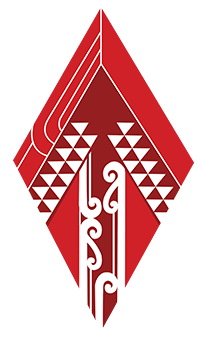
|
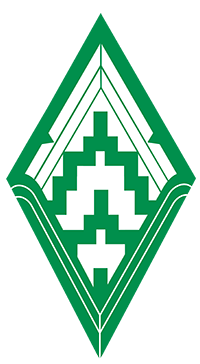
|
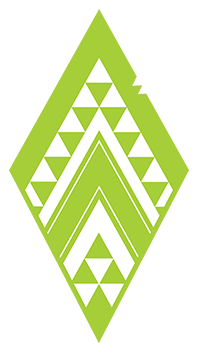
|
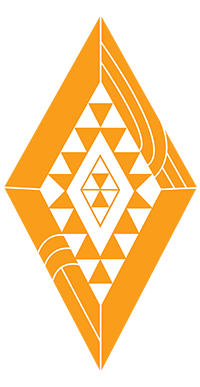
|
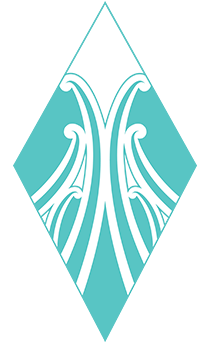
|
|

Representing the levels and forms of aroha that can be found throughout our lives across our many communities. We acknowledge the wide range of obstacles and the journey it takes to overcoming everything that stands in our way to expressing aroha within.
Ko wai koe? What are your strengths/weakness?
Ko Tainui te waka
Ko Hoturoa te rangatira
E moe ia a Whakaotirangi
Ka putamai a Torerenuiarua
Ko Rangiahua te maunga ki uta ko Kaparangi
Ko Wainui te awa ka rere ana ki te moana nui o Toi
Ko Torerenuiarua te tipuna
Ko Manakiao te tangata
Ko Ngai Tai te iwi
Ko Marlene Herewini tōku ingoa
He kaiwhakahaere aramahi au ki te kaaunihera o Tauranga moana
My name is Marlene Herewini and I am an Employment Pathways Lead at Tauranga City Council
I have a background in career development, and in my role I get to use a lot of cool tools that talk about your personality and what your strengths are. One of them I’ve done recently. This was an easy question, but in my own language, my five strengths translates to Whakawhanaungatanga first, building connections with people and relating to their whakapapa and their stories about the world that they live in. Learning about myself through those perspectives as well and encouraging the unique qualities of each of us, that’s really important to me and I do it throughout my role.
I guess all of that encompasses Aroha and at times I also need to step back and have time to myself to sharpen my thoughts and ideas, to create some awesome experiences in my personal and work life. One that stands out for me is completing my tohu (qualification) in career development and business as a sole parent. That was no easy feat because it’s not like a year or two, it’s year after year after year of doing the Mahi and the learning at all sorts of hours of the evening and morning.
In terms of my weaknesses, one of the things that I probably hold closest to my heart is that I do not speak te reo and I’ve studied it for years. I’ve studied tikanga, I’ve had some really amazing inspirational mentors around me, and one of those mentors, and also a whanaunga of mine, has always said to me, that’s okay – the point is we are here when you’re ready and I guess that alone has helped me. What I thought was a hole in my heart, now I think about it as like a garden just waiting to be planted. So, I feel better knowing that will happen for me one day when I’m ready and I know I can do it because of these things I’ve already done in the past.

Seeking guidance from our kaitiaki Hiwa-i-te-rangi, we take a journey through our different aspirations, goals and dreams. This tohu acknowledges hard work, wisdom, the reach of ones goals and the desire that comes from this mahi.
What were/are your career aspirations leading into your chosen career path?
When I left school I went to teacher’s college, but that didn’t happen because while I was studying my nanny passed away and two weeks later my cousin passed away. I was 19 and it was the first time I had experienced that kind of grief.
I did go back to Teacher’s College again as an adult student and the dots still weren’t connecting for me. I realised it was the right thing – probably just the wrong subject. I ended up doing a career development qualification, which is all about that kind of helping people step into their potential. That was a real awakening for me.
After teacher’s college, I worked a couple of part time jobs and started at the Ministry of Social Development as a cadet. I eventually did the Māori Pacific management programme called Te Aratiatia, which I think was ahead of its time – we were all Māori Pacific people trying to work out what this dream of being a manager looked like.
At a career development session in Tokoroa I worked with a group of students and we were playing a little career game I created and I got the question, what is your career goal?
I put it out there to the universe and said, “I want to help wahine Māori step into their potential, because I felt like there were so many of us who have so much potential but no one to guide you to explore that, to verbalise it, to talk to people who might be in that space, or just connecting people to people.”
I ended up getting a role at Tauranga City Council to run a programme for cadets. These are young people who work and are paid at council and learn roles across different teams, over 12 months, which is a really good time frame. It’s been so rewarding for me personally and I get that from the cadets

With adventure comes challenges as well as obstacles to overcome. We stand proud as we overcome these obstacles. This tohu draws inspiration from the Niho Taniwha and Aramoana patterns. We acknowledge reaching our destination and preparing ourselves for the many new adventures ahead.
How wīwī wāwā has your career adventure been?
There have been things that happened over the course of my career that were quite unexpected.
One of the things that happened was ending up in Rotorua which was not a place I ever expected to be, but there’s always opportunities that come from these unexpected circumstances.
For me it’s just about taking the opportunities that come with unexpected circumstances, and becoming a sole parent was not the plan. But it happens.
Finding a place where I could balance being a Mama and being an akonga and then being at mahi every day, I think we sometimes take it for granted that we need to have gratitude for ourselves, that we have the ability to move through those times in our lives where we have to juggle a lot.
It’s not easy and they’re probably are a few tears along the way, but we just sort of get through and honestly getting to the top of the maunga, looking back and seeing that, I knew I could do that but sometimes you have a few little trips and falls as well. It’s just that belief and also having good people along the way to guide you.

These patterns represent bravery and being strong in the face of adversity. We strive to be persistent and positively challenge anything that threatens to alter, restrict, and put a barrier in the way of our desired pathway.
What was your defining moment? What words of wisdom or change in heart, changed your stars?
I don’t know if this had a direct impact on my career, but one of the most powerful stories I remember, is I had an international student and we used to have little catch ups. He told me the story of how when he arrived to Aotearoa, he was gifted a journal from his father and he didn’t realise but when he flicked through the journal, the middle pages were all filled up.
His father had written in the middle pages: ‘You must always respect the indigenous culture of the land that you stand in’ or something to that effect. And he hadn’t written it once but had repeated those lines through the middle pages of his journal. This gave me goosebumps.

Here we are drawing inspiration from the Pūhoro pattern. The pūhoro is used here to represent the strength, speed and agility needed to move forward and accomplish ones goals.
What future actions/recommendations do you have for those who want to be in a career like yours?
What is helpful is that my tohu may not have changed how I operate, but it certainly gives you a great foundation of knowledge and theory so you know you’re guiding people in the right way.
Just participate in whatever space you’re stepping in to, and learn from those who are already there – mentors are key.
In terms of the role itself, I saw statistics from when men and women look at job ads and men will go, ‘I can do 60% of that so I’m going to apply’ while women go ‘I can’t do 100% of that, so I don’t think I’m going to apply’.
My advice is to push yourself out there. We don’t need to know everything before we do a role. We just have to know that we want to learn and grow in it. If you’re not growing in a role, then I think you need to be looking at other roles.
I always say to our young people come and get it, we don’t need to be in our roles for 30 years. You know, all you have to do is call us and ask our advice and come and get it!!
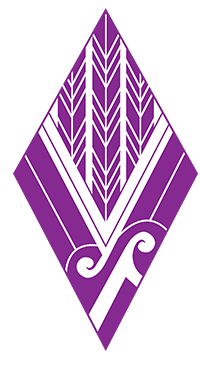
Success, best mentioned in the whakatauki “Tūwhitia te hopo, mairangatia te angitū!” Feel the fear and do it anyway!
What are some the failures/challenges in your life that have helped with your chosen career path? What are some memorable wins for your chosen path?
Studying the same qualification twice and not completing it, many will think is a failure. I call it learning on a very long path.
Another challenge is doing things like speaking publicly and being in places where you’re not totally comfortable, but still being yourself and connecting with people. I remember standing in front of a few hundred students for their induction and being worried about speaking like I knew everything – but no, all you’re doing is trying to make them feel welcome.
I was always amazed when I worked at the polytech that so many students, particularly Māori, didn’t go to graduation. I went to my graduation by myself because my mother was doing chemotherapy at the time.
I enjoyed it so much. I knew people at home were really happy for me and I’m taking those moments to say I’ve done a good job and I’m proud of myself. I was the first of my whānau to get a degree as well.
Reflection is good, just celebrating ourselves and everyone that’s contributed to our success, I think it’s good practice we need to do more of.